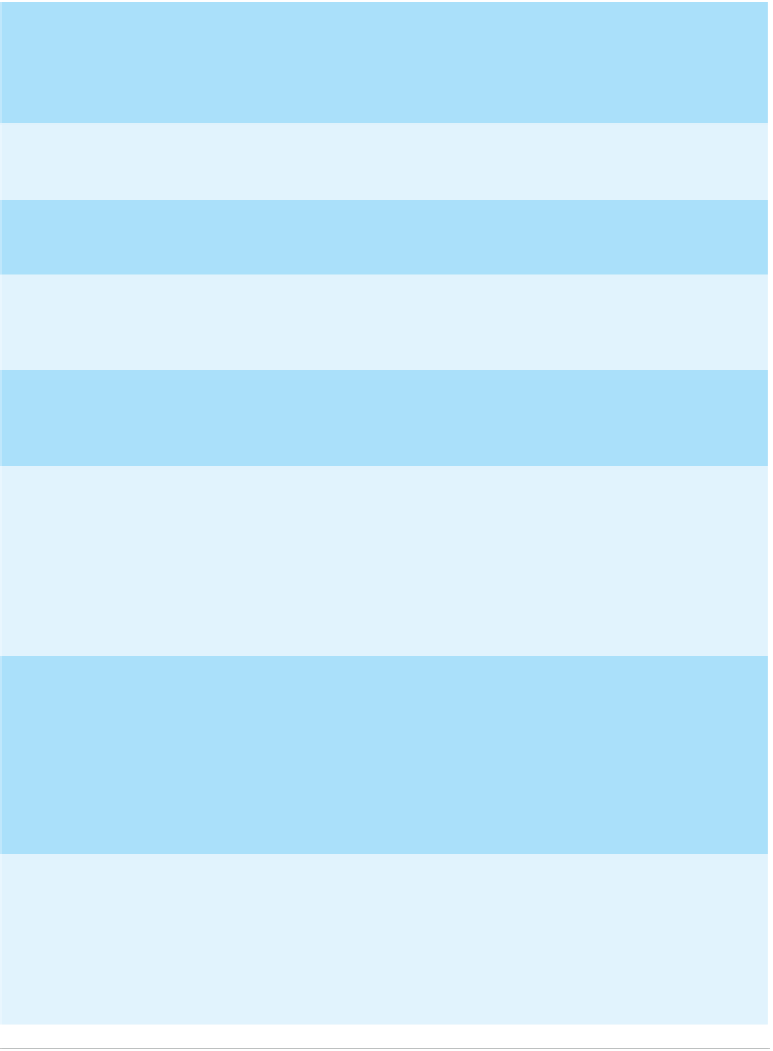Java Reference
In-Depth Information
Display 16.15
Methods in the
ListIterator<T>
Interface
(part 2 of 2)
public
T previous()
Returns the previous element of the list that produced the iterator. More specifically, returns the
element immediately before the cursor position.
Throws a
NoSuchElementException
if there is no previous element.
public boolean
hasNext( )
Returns
true
if there is a suitable element for
next()
to return; returns
false
otherwise.
public boolean
hasPrevious( )
Returns
true
if there is a suitable element for
previous()
to return; returns
false
otherwise.
public int
nextIndex( )
Returns the index of the element that would be returned by a call to
next()
. Returns the list size
if the cursor position is at the end of the list.
public int
previousIndex( )
Returns the index that would be returned by a call to
previous()
. Returns
1
if the cursor
position is at the beginning of the list.
public void
add(T newElement) (
Optional
)
Inserts
newElement
at the location of the iterator cursor (that is, before the value, if any, that
would be returned by
next()
and after the value, if any, that would be returned by
previous()
).
Cannot be used if there has been a call to
add
or
remove
since the last call to
next()
or
previous()
.
Throws
IllegalStateException
if neither
next()
nor
previous()
has been called, or if
the
add
or
remove
method has already been called after the last call to
next()
or
previous()
.
public void
remove() (
Optional
)
Removes from the collection the last element returned by
next()
or
previous()
.
This method can be called only once per call to
next()
or
previous()
.
Cannot be used if there has been a call to
add
or
remove
since the last call to
next()
or
previous()
.
Throws
IllegalStateException
if neither
next()
nor
previous()
has been called, or if
the
add
or
remove
method has already been called after the last call to
next()
or
previous()
.
public void
set( T newElement) (
Optional
)
Replaces the last element returned by
next()
or
previous()
with
newElement
.
Cannot be used if there has been a call to
add
or
remove
since the last call to
next()
or
previous()
.
Throws
IllegalStateException
if neither
next()
nor
previous()
has been called, or if
the
add
or
remove
method has been called since the last call to
next()
or
previous()
.

